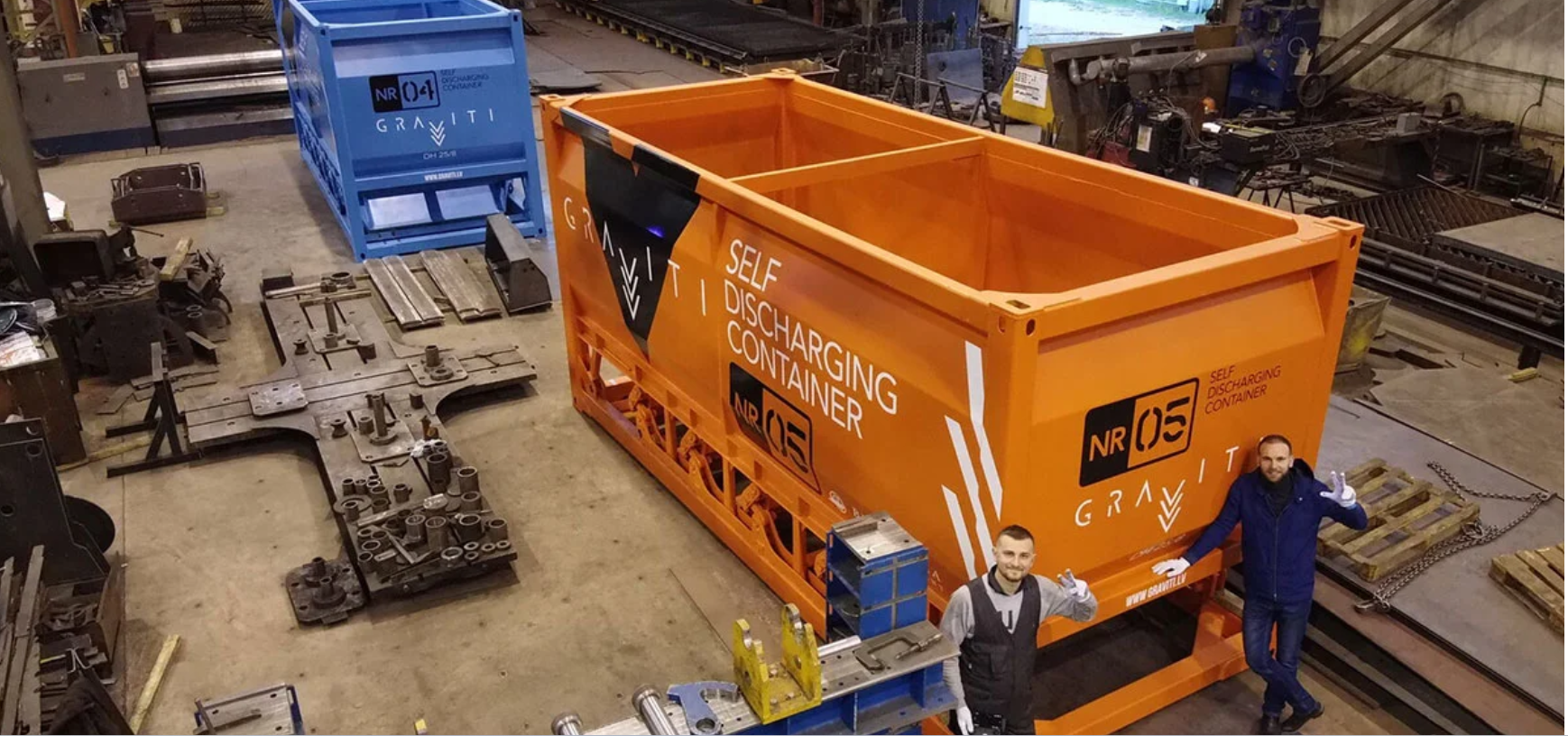

As a combination of engineering and creative thinking, a cargo solutions provider, Graviti has developed a technology that reduces the costs of loading bulk cargo, speeds up the process and gives their clients a competitive advantage — the European manufacturer of self-discharging containers designed to speed up bulk cargo loading into ships.

The mission is to provide the industry with reliable customised solutions optimising routine loading processes. Customers' business interests rank as the priority guided by a sense of innovation, customer satisfaction and manufacturing superiority. The company can guarantee safe, secure and efficient solutions using cutting-edge international technology and developments, and quality control is performed at each production stage.
According to Graviti, the self-discharging containers have been developed according to unique technology and are constantly upgraded based on customer experience. The 40 m3 container speeds cargo loading by 1.7 times and saves up to 30 per cent on loading costs without additional equipment. While the 30 m3 container speeds up cargo loading by 1.5 times using Graviti containers and saves up to 25 per cent on loading costs without additional equipment.
_0_0.jpg)
The containers operate on electrical power, and every container has its own battery. The floor can be remotely operated to open and close hydraulically. With a fully charged battery, 500 cycles of loading/offloading are guaranteed, although, in practice, clients report even higher numbers. Because they are self-unloading, they can securely direct dry cargo loading from warehouses to the ship’s hold.
After renting Graviti’s innovative automated dry bulk containers for 2 years and being fully satisfied with the results, the Rigal Central Terminal (in the Freeport of Riga) has decided to purchase six ‘SDC 40’ units from Latvian bulk handling equipment specialist Graviti, even upgrading from ‘SDC30’ types to the bigger ones. The terminal has an option to acquire six more in the future. The containers have already been delivered and are operational. Having noticed the practical implications and cost-efficiency of the system, several other ports in North-Western Europe, Eastern Europe and the Middle East have expressed their interest, too.
The SDCs in Riga will be able to unload its 27 m³ cargoes in 30 seconds, which is 1.5 times more productive than regular loading methods. This method also saves up to 35 per cent of the cost of loading, making it a cost-effective solution.
In 2022, more than 150 ships were loaded with GRAVITI containers, handling about 1.5 million tonnes of cargo. There have yet to be any claims, breakdowns or returns proving the reliability and effectiveness of this containerised ship-loading system, according to Graviti. To date, about 60 SDCs have been sold worldwide.
Dinis Hruscovs, the Managing Director of Graviti and responsible for developing the SDC, said, “We are very proud of this contract with the Freeport of Riga. It shows that we are now truly past the initial stages in which potential clients were interested but were not yet ready to invest in such an innovation. It has had to prove itself thoroughly in practice, which has turned the table. The fact that our system reduces CO2 emissions in cargo loading logistics also plays a part: the self-discharging containers can handle more bulk faster than traditional grabs, so fewer movements are needed. Combine that with lower operational cost and relatively low pricing due to the simplicity of the design, and you can see why we are currently speaking with clients in other regions, too.”
Adopting technology-driven self-discharging bulk cargo in the bauxite logistics terminal will be another game-changer for the sector regarding cost and time reduction factors and lowering CO2 footprint.
Responses








